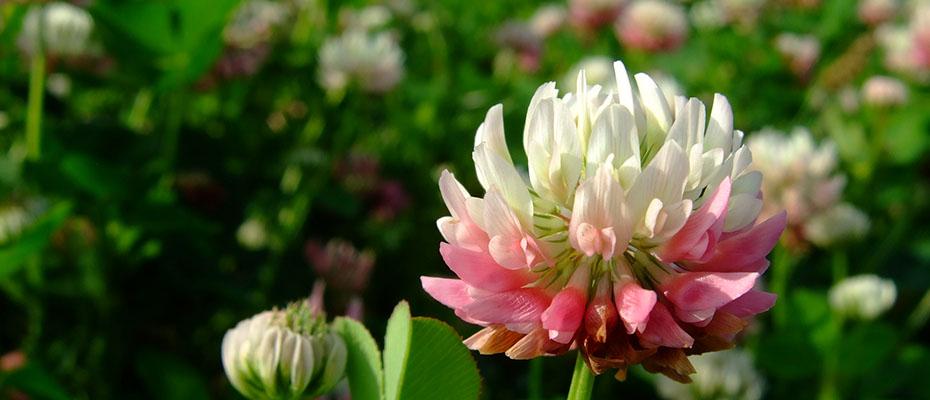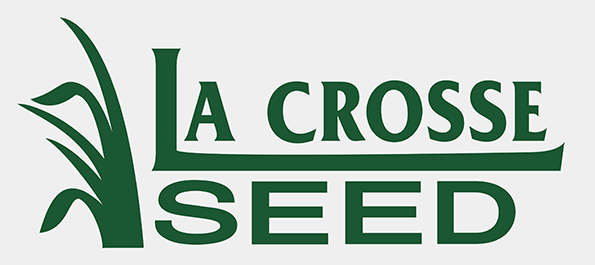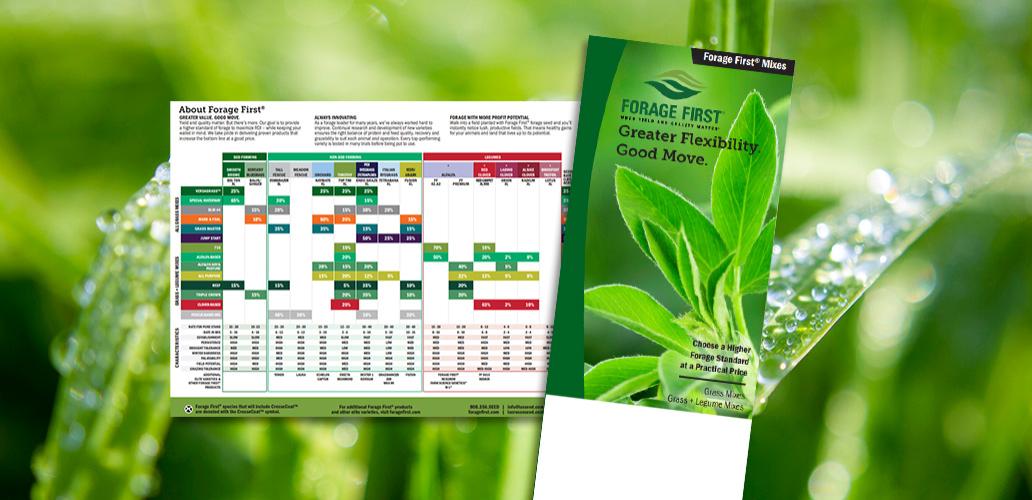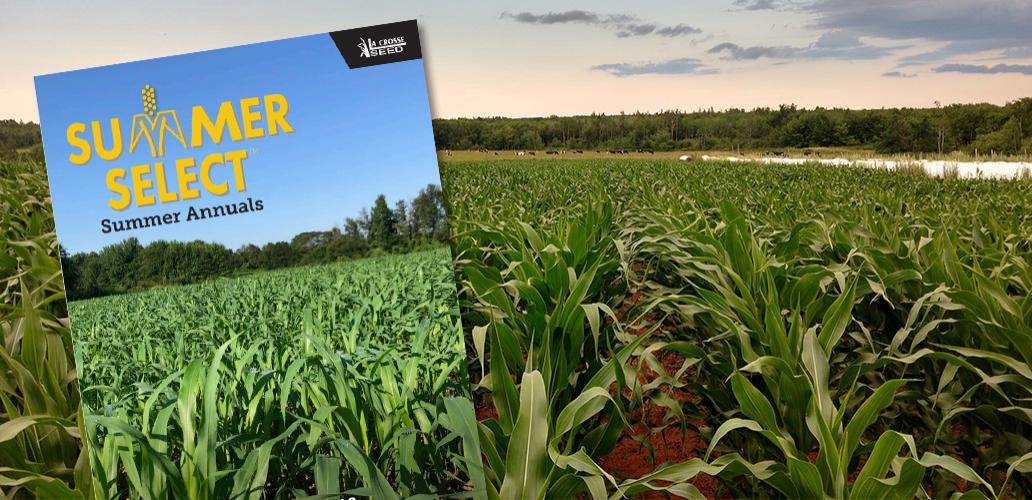Forage First Guide I Summer Select Guide
Greater Value. Good Move. Yield and quality matter. But there’s more. Our goal is to provide a higher standard for forage to maximize ROI– while keeping your wallet in mind. We take pride in delivering proven products that increase the bottom line at a good price.

Radium XL Alsike Clover is excellent for hay and pastures, especially where wet or acid soils exist. Radium XL also grows well in grass mixes.
CHARACTERISTICS:
Establishment: Fast
Persistence: Medium
Drought Tolerance: Low
Winter Hardiness: High
Palatability: High
Yield Potential: High
Grazing Tolerance: Medium High
SEEDING:
Seeding Rate:
Alone (lbs./acre): 6-8
Mixes (lbs./acre): 2-4
Seeds/lb.: 728,000
Depth (In.): 1/4-1/2
Planting Time:
Mar.-May; Aug.-Oct.
Emergence (days): 7
Life Cycle: Perennial
Soil pH: 6.0-6.5
Adaptation:
White clover thrives best in cool, moist climates on soils with ample lime, phosphate and potash. In general, white clover is best adapted to clay and silt soils in humid and irrigated areas. It grows successfully on sandy soils with a high water table or irrigated droughty soils when adequately fertilized. White clover seldom roots deeper than 2 ft., which makes it adapted to shallow soils when adequate moisture is available.
MANAGEMENT:
Management for forage is aimed at maintaining 40-50% clover. Close grazing (2 in. stubble) favors clover, whereas light grazing favors grass. Well-fertilized grass will outgrow clover in fall and winter and may smother clover. Spring nitrogen applications will stimulate grass and provide early feed, but excessive rates are detrimental to clover stand. Phosphate applications are broadcast in fall or spring according to soil tests. Sulfur, boron or magnesium may be needed for maximum production on some soils in western part of clover’s range.
- Withstands heavy grazing pressure, but merits management for success (see “What Forages are Safe for Animals” at lacrosseseed.com)
- Tolerant to poorly drained soils
- Survives in poor pH soils

.png)
.png)


.png)










